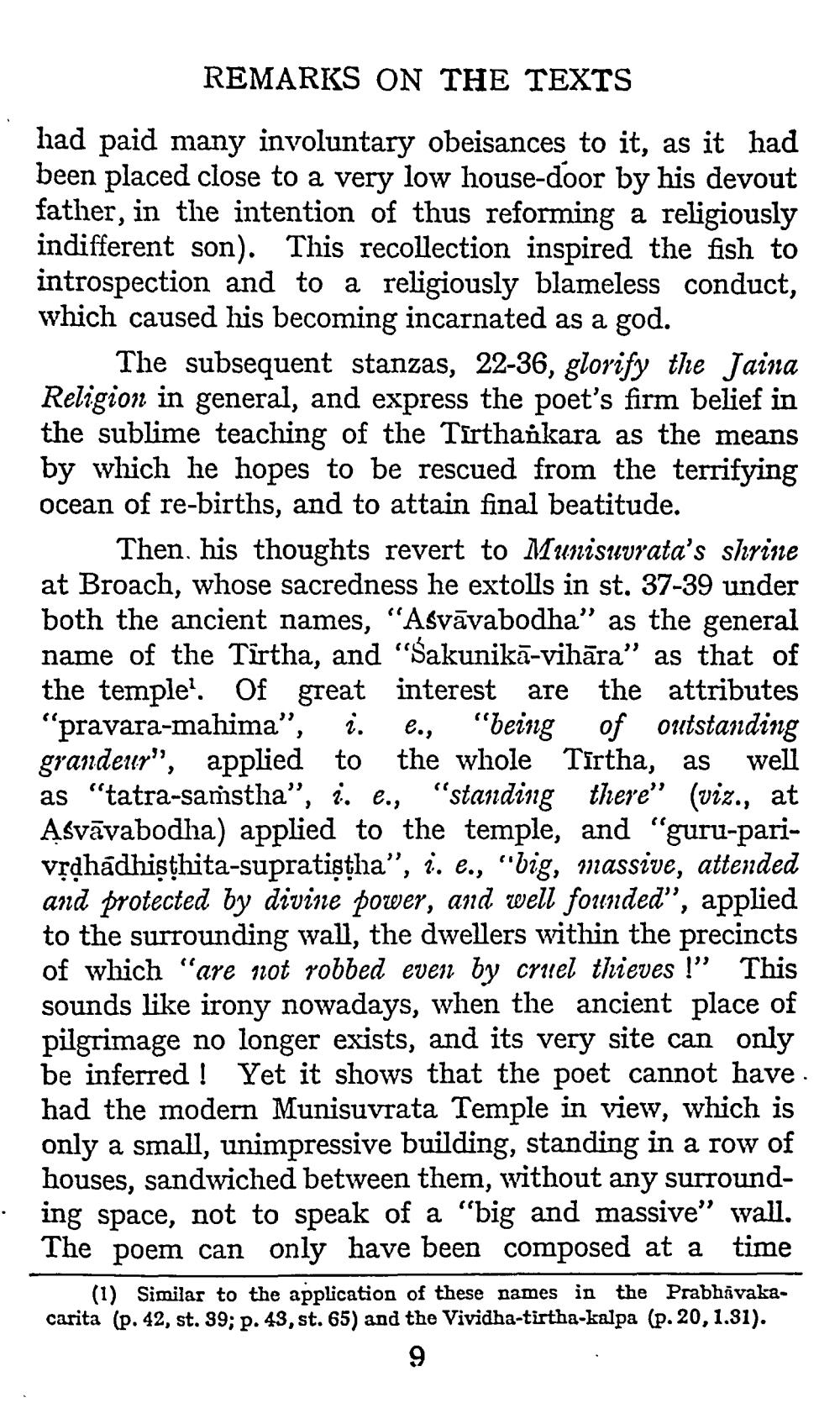________________
REMARKS ON THE TEXTS
had paid many involuntary obeisances to it, as it had been placed close to a very low house-door by his devout father, in the intention of thus reforming a religiously indifferent son). This recollection inspired the fish to introspection and to a religiously blameless conduct, which caused his becoming incarnated as a god.
The subsequent stanzas, 22-36, glorify the Jaina Religion in general, and express the poet's firm belief in the sublime teaching of the Tirtharkara as the means by which he hopes to be rescued from the terrifying ocean of re-births, and to attain final beatitude.
Then. his thoughts revert to Munisuvrata's shrine at Broach, whose sacredness he extolls in st. 37-39 under both the ancient names, “Asvāvabodha" as the general name of the Tirtha, and “Sakunikā-vihāra” as that of the temple? Of great interest are the attributes "pravara-mahima", i. e., “being of outstanding grandeur, applied to the whole Tirtha, as well as “tatra-samstha”, i. e., "standing there" (viz., at Ašvāvabodha) applied to the temple, and "guru-parivždhadhisthita-supratiştha”, 1. e., "big, massive, attended and protected by divine power, and well founded”, applied to the surrounding wall, the dwellers within the precincts of which "are not robbed even by cruel thieves !” This sounds like irony nowadays, when the ancient place of pilgrimage no longer exists, and its very site can only be inferred ! Yet it shows that the poet cannot have. had the modern Munisuvrata Temple in view, which is only a small, unimpressive building, standing in a row of houses, sandwiched between them, without any surrounding space, not to speak of a "big and massive” wall. The poem can only have been composed at a time
(1) Similar to the application of these names in the Prabhivakacarita (p. 42, st. 39; p. 43, st. 65) and the Vividha-tirtha-kalpa (p. 20,1.31).




